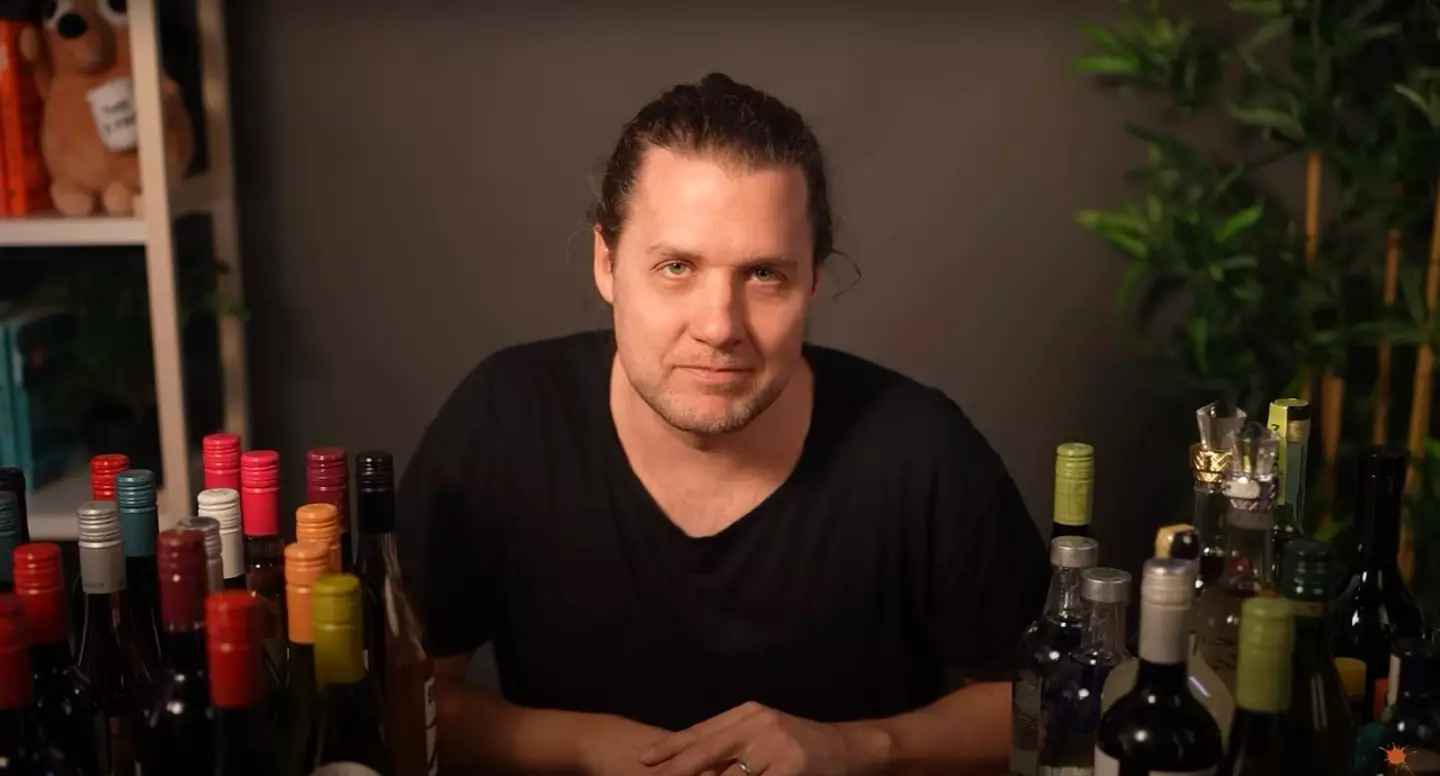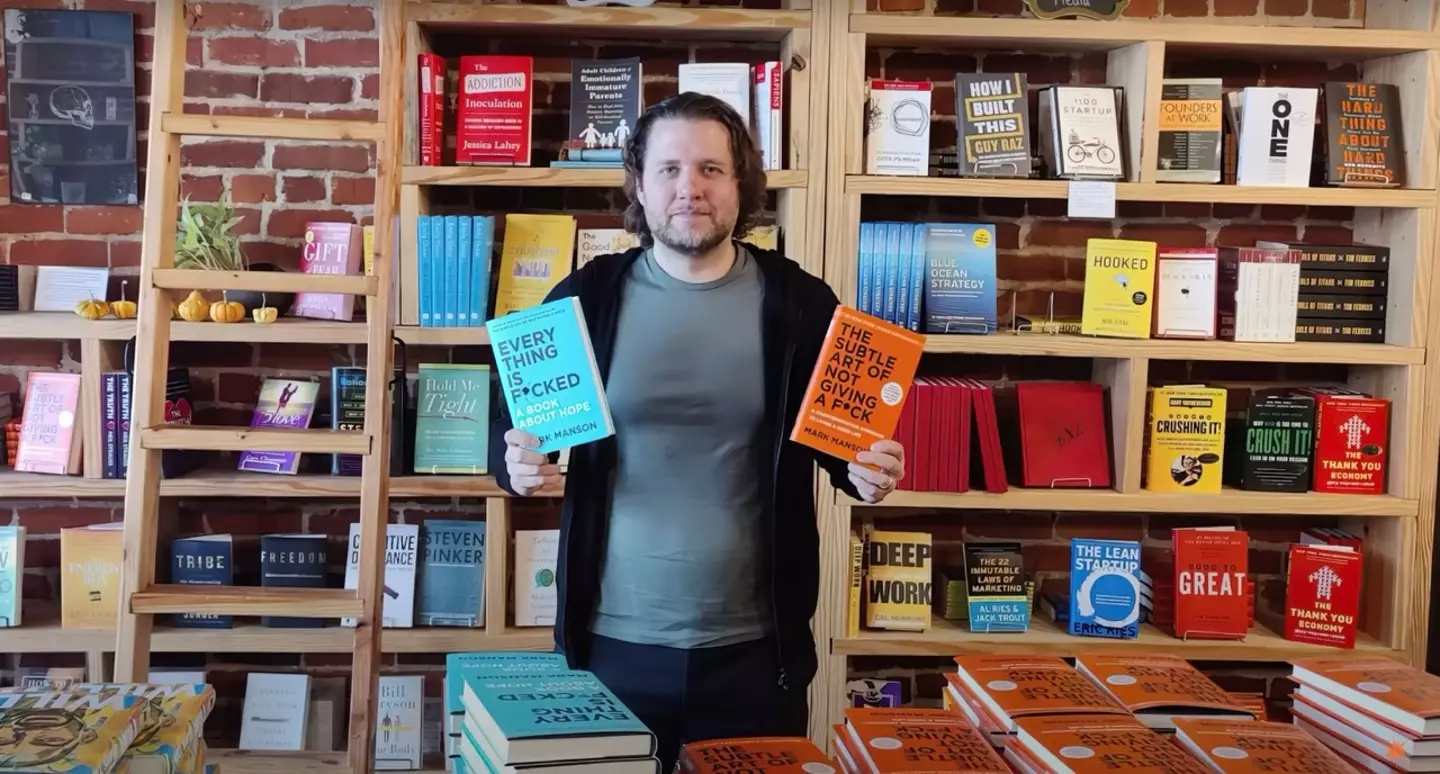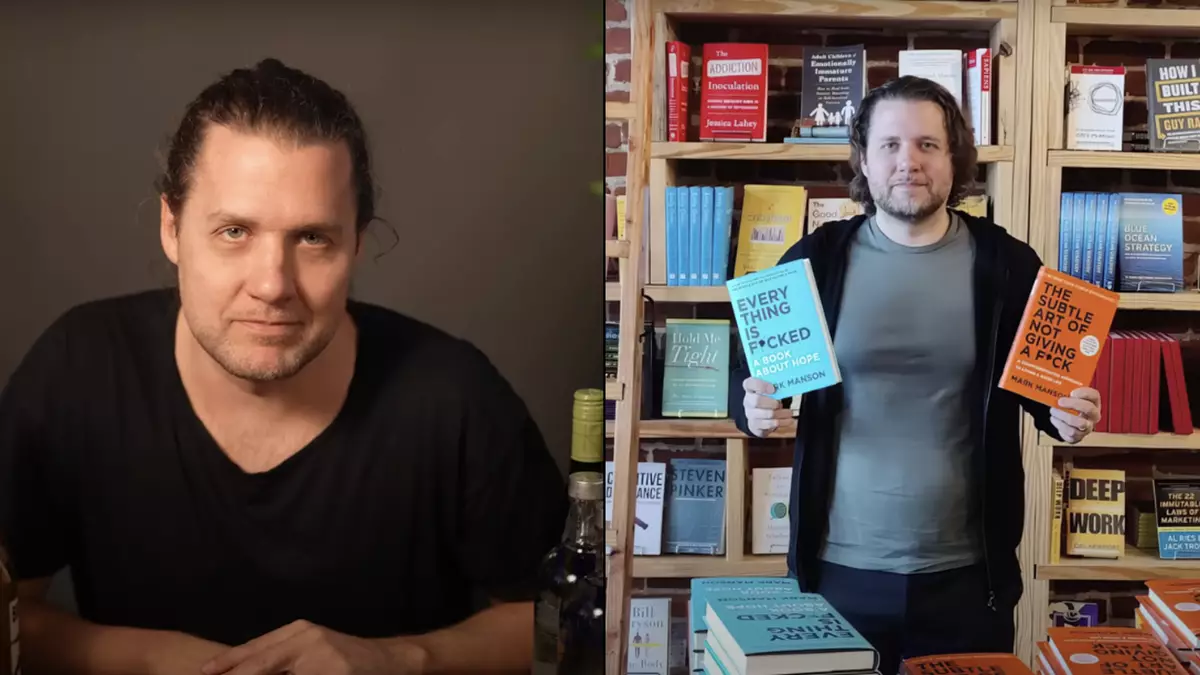Best-selling author Mark Manson has revealed what happened after he made the decision to give up drinking.
The US-based writer, 40, is best-known for his self-help book ‘The Subtle Art of Not Giving a F*ck’ which, along with his other titles, sold around 20 million copies, according to Mark’s website.

Mark’s self-help books have sold millions of copies. (YouTube/Mark Manson)
One of the many reasons for Mark’s success is his ability to open up about his personal issues, as he has since spoken about his decision to quit drinking for 500 days.
“After more than two decades of drinking, last summer, I decided to stop drinking alcohol for good,” he wrote on his blog.
But before Mark revealed the advantages of not drinking, he first addressed the ‘benefits of alcohol’.
“I never blacked out. I rarely got sick or fell over,” he explained.
“I was a happy drunk—funny and outgoing and completely uninhibited.
“Combine this with a social environment that rewards an ability to drink with status, and by my early 20s, I had adopted an identity as ‘the party guy’.

The author said he struggled with drinking in his 30s. (YouTube/Mark Manson)
“I was out every night, Tuesday through Saturday, drink in hand, laughing it up, having a blast.”
Though in his 30s, Mark said that his identity started ‘to crack’, adding: “My body and mind couldn’t handle the booze anymore. I gained a ton of weight.
“I fell horribly out of shape. I slept poorly and became stressed all the time.
“By age 35, I began to experience some mild health problems related to my weight, poor diet, and my drinking.”
Mark’s five unexpected benefits from quitting drinking
Less insecure
“Since stopping drinking alcohol entirely, I am on an incredibly even keel. I don’t get as upset when something goes wrong,” Mark wrote.
“This has been an unexpected boon for my productivity and work. Less energy spent trying to manage my emotions is energy that can be invested into my writing and recording.”
More clarity
Mark said that when he used to drink a lot, he used to feel much more anxiety and fear of missing out (FOMO)’ by passing up opportunities.
“I would dedicate myself to a new idea only to start questioning that idea a few days later. I would ride this rollercoaster of emotion, one day feeling like I was doing exactly what I was meant to be doing, and the next having an existential crisis that it was all a waste of time,” he added.
Fewer but better friends

Having less friends can be more valuable, Mark says. (Getty Stock Images)
“It goes without saying: if you need to drink to enjoy that person or that thing—then you don’t actually enjoy that person or that thing. And you should stop doing both,” Mark wrote.
“Meanwhile, without the distractions of booze, I’ve found that the friends I hang out with sober, I’ve deepened my connections with them. Sober socialising is definitely a case of quality over quantity.”
Changed hobbies and interests
He said that for the first time in 12 years he started running again and took up surfing.
Mark believes that giving up drinking has allowed him to focus on his hobbies.
“Overall from the outside, my life probably appears boring and dull, but strangely I’m way more satisfied and happy,” he said.
Better sex
“Let’s just say, when I step up to the plate these days, I’m not worried about my bat giving out when I swing…” he quipped.
“So, if you’re considering laying off the sauce, even for a little while, I say give it a shot.”





